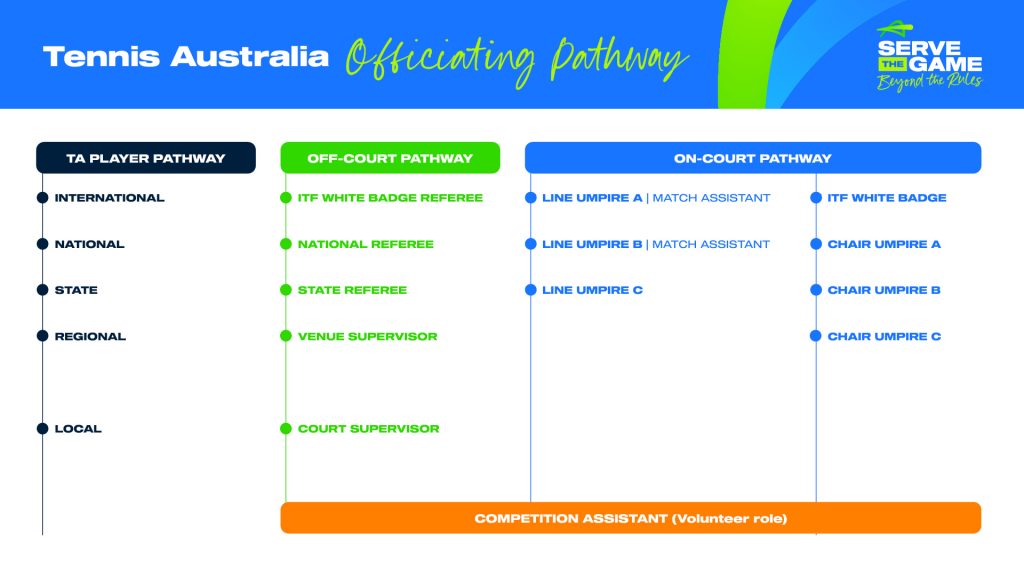Types of tennis official
Tennis officials play a crucial role at all levels of our sport. There are many different types of official, including:
Line Umpires
Line Umpires get to call the shots – literally – at all levels of tournaments.
It might appear simple, but the best Line Umpires need to be able to concentrate for long periods of time, be team players, and (of course) require excellent eyesight. As well as calling the lines, they act as an extra pair of eyes and ears for the Chair Umpire.
Match Assistants
Match Assistants will be utilised when Live Electronic Line Calling (Live ELC) is utilised at the Professional Level of tennis tournaments.
Officials must have Line Umpire experience with positive grades and feedback from Pro Tour levels and above, to be considered for the Match Assistant role.
The Match Assistant role is to assist the Chair Umpire with any matters that arise on the court. For example – escort players on authorised breaks, prepare the balls for changes and oversee the change, have the ability to communicate clearly with chair umpires and players especially in pressured environments, the ability to switch into Line Umpire calling at short notice should there be a system error, along with much more.
Chair Umpires
Aside from the players, the Chair Umpire is the most important person on court during a match.
The Chair Umpire has enormous responsibility during a match, and is responsible for calling the score, enforcing the rules and managing the players. A successful Chair Umpire needs great communication skills, the ability to stay calm under pressure, and 20:20 vision.
The best Chair Umpires work full-time in the role, travelling the world with the tennis tours.
Community Official
Being a Community Official is a great way to get involved in tennis at the grassroots level. They are responsible for monitoring a number of courts at a tournament or competition. They assist and educate players, parents and coaches; and assist in the smooth running of an event.
Community Officials start as Competition Assistants which help to identify on court queries but can quickly graduate to Court Supervisors to help enforce the Rules of Tennis and Code of Behaviour, as well as resolving on court queries.
Referees
The Referee is the expert in all things rules and regulations. Referees supervise all aspects of a tournament, from taking charge of the draws and schedules, to enforcing the rules and making sure everything runs smoothly and in the spirit of fairness.
Being a Referee requires exceptional knowledge of the rules of tennis, the ability to multi-task in a pressured environment, and to listen and communicate well with everyone involved with the tournament.
The National Officiating Pathway
The following pathway shows how you can progress from your introduction to becoming an official to working at the highest level of the sport:


